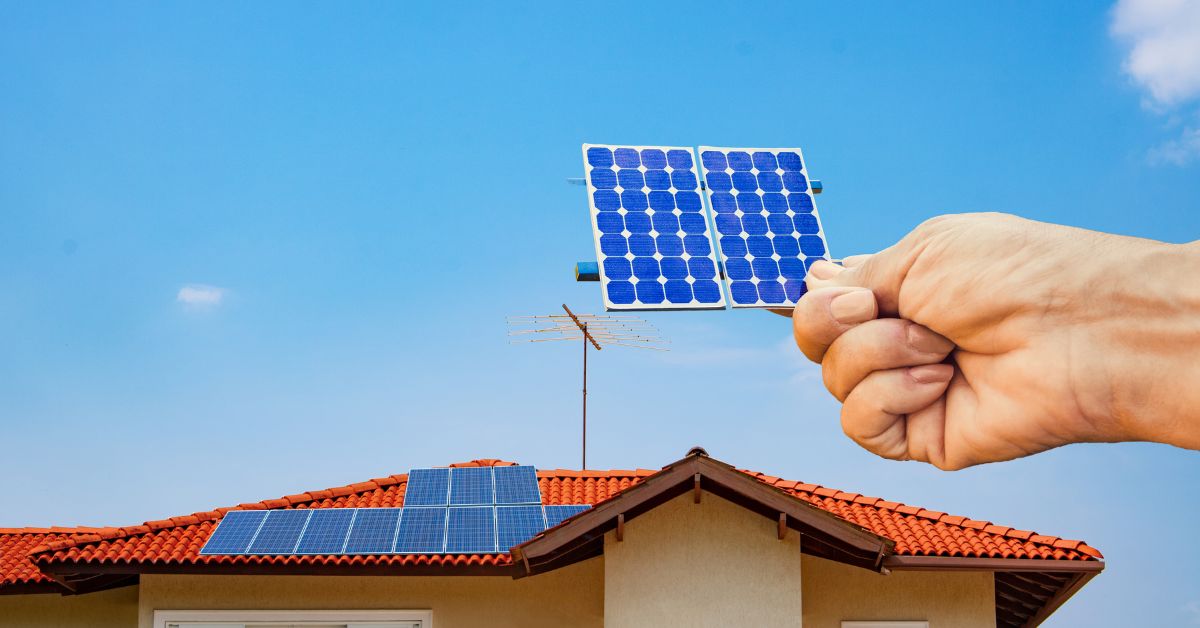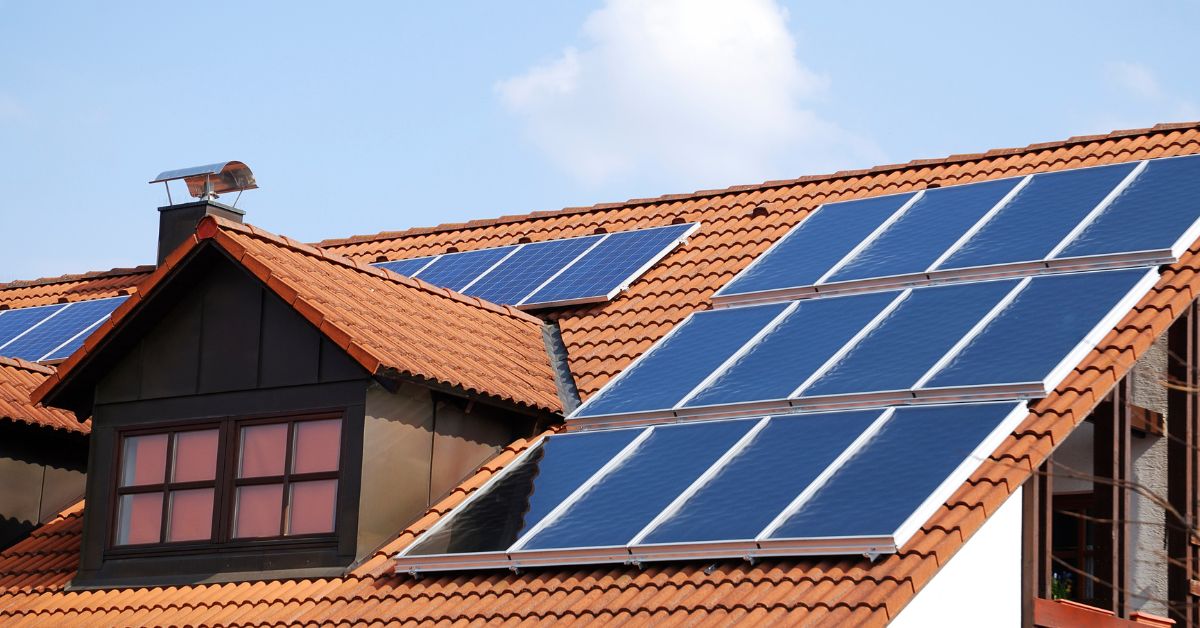Solar Panel System Subsidy in Madhya Pradesh
Solar Panel System Subsidy in Madhya Pradesh program aims to promote renewable energy adoption by offering financial incentives to residents and businesses. Under this scheme, individuals can install solar panels at reduced costs, with subsidies covering a significant portion of installation expenses.
The program is designed to make solar power more accessible, lowering electricity bills and reducing carbon footprints. It supports both grid-tied and off-grid systems, encouraging energy independence. This initiative aligns with Madhya Pradesh’s commitment to sustainable development, providing long-term environmental and economic benefits while contributing to India’s national renewable energy goals.
Table of Contents
Solar Panel System Subsidy in Madhya Pradesh: A Comprehensive Guide
Introduction
Madhya Pradesh, one of India’s largest states, has been making strides in renewable energy adoption, particularly in solar energy. The state, endowed with vast land areas and abundant sunlight, presents a lucrative opportunity for solar power generation. To promote the adoption of solar energy systems, the government of Madhya Pradesh has introduced a variety of subsidy schemes and incentives. These are aimed at both individuals and businesses, enabling them to install solar panels more affordably, contributing to the state’s green energy goals.
In this blog post, we will explore in detail the solar panel system subsidies available in Madhya Pradesh, the eligibility criteria, the application process, types of solar systems, financial benefits, and how these subsidies can help reduce costs for consumers.
The Push for Solar Energy in Madhya Pradesh
Solar energy is critical to India’s broader renewable energy strategy. As a nation heavily reliant on fossil fuels, the need to reduce carbon emissions and meet global climate targets has driven the Indian government to ramp up its focus on renewable energy sources like solar, wind, and biomass. Madhya Pradesh, with its geographic advantage, is well-positioned to take a leading role in this transformation.

Over the years, the Madhya Pradesh government has collaborated with the central government to initiate various solar projects under the Ministry of New and Renewable Energy (MNRE). These include large-scale solar farms, rooftop solar installations, and solar-powered agricultural systems. These efforts have led to the development of policies aimed at supporting the widespread adoption of solar energy systems across the state.
Overview of Solar Panel System Subsidies in Madhya Pradesh
- Central Government Subsidies Under the Jawaharlal Nehru National Solar Mission (JNNSM), the central government offers subsidies and financial incentives to both residential and commercial entities for the installation of solar photovoltaic (PV) systems. In Madhya Pradesh, these subsidies are provided for grid-connected rooftop solar installations, which aim to reduce dependency on non-renewable energy sources.
- Subsidy Rate: As of 2023, the central government provides a subsidy of 40% for solar systems with a capacity up to 3 kW, and 20% for systems between 3 kW and 10 kW. No subsidies are provided for capacities above 10 kW.
- Eligibility: The scheme is available to residential consumers, housing societies, and institutional establishments. It is not available for industrial or commercial entities under the standard residential subsidy rates.
- Madhya Pradesh State-Specific Subsidies In addition to the central government subsidy, the state government of Madhya Pradesh offers additional financial assistance to promote the use of solar energy. These subsidies are provided to help reduce the initial costs of installation, making solar systems more accessible to a wider audience.
- State Subsidy: While the central subsidy covers a significant portion of the cost, the state government may offer additional financial incentives through special state-funded programs or tax relief for renewable energy investments.
- Energy Credits: Solar panel users can also benefit from the state’s net metering policy, which allows consumers to sell excess electricity back to the grid. This can further offset costs, reducing electricity bills and offering a return on investment.
- Subsidies for Agricultural Solar Pumps Farmers are major beneficiaries of solar subsidies in Madhya Pradesh. Under schemes like PM-KUSUM (Pradhan Mantri Kisan Urja Suraksha evam Utthaan Mahabhiyan), the government provides financial support for installing solar-powered irrigation pumps, which help reduce dependency on diesel-powered systems and ensure sustainable water access.
- Subsidy Rate: Under this scheme, the government provides 60% subsidy on the installation of solar pumps, with 30% of the cost covered by the government (both central and state), and the remaining 30% can be financed through loans or personal investment.
- Advantages for Farmers: Solar pumps not only reduce energy costs but also provide a reliable energy source for irrigation, especially in off-grid rural areas.
Benefits of Installing Solar Panels in Madhya Pradesh
- Cost Savings One of the most significant benefits of installing a solar panel system, especially with the help of government subsidies, is the cost savings. After the initial installation costs, solar energy is essentially free. Homeowners and businesses can significantly reduce or even eliminate their monthly electricity bills. In addition, with net metering policies in place, users can sell any excess electricity generated back to the grid. This creates an opportunity to earn additional income, further improving the financial viability of solar installations.
- Environmental Impact By adopting solar energy, individuals contribute to reducing carbon emissions and the overall demand for fossil fuels. Solar energy is clean, renewable, and has a much lower environmental impact compared to traditional energy sources like coal or natural gas. With Madhya Pradesh’s ambitious renewable energy targets, the increased adoption of solar systems helps the state meet its sustainability goals while contributing to the national effort to combat climate change.
- Energy Independence Installing solar panels allows individuals and businesses to become more energy-independent. In a state like Madhya Pradesh, where power outages and load shedding can be a common issue in certain areas, having a solar power system provides a reliable source of electricity. In rural areas, particularly for farmers, solar pumps and systems help reduce the reliance on inconsistent grid power or expensive diesel generators.
- Increased Property Value Homes and commercial buildings equipped with solar power systems can see an increase in property value. As energy costs continue to rise and environmental consciousness grows, properties with built-in renewable energy systems are becoming more attractive to buyers. Solar installations not only reduce electricity bills for new owners but also showcase a commitment to sustainability, which can be a selling point in real estate markets.
- Job Creation and Economic Growth The push for solar energy in Madhya Pradesh has also spurred job creation. From solar panel manufacturing to installation and maintenance, the renewable energy sector is generating employment opportunities. Skilled technicians, engineers, and sales professionals are in high demand, contributing to the local economy.
Types of Solar Panel Systems
- Grid-Connected Solar Systems Grid-connected solar systems are the most popular type of solar installation in urban and suburban areas. These systems allow users to generate electricity from solar panels and feed any excess energy back into the grid. In return, they receive credits from their electricity provider, which can offset the cost of grid electricity usage. Advantages:
- Lower electricity bills through net metering.
- No need for expensive battery storage.
- Can still use grid electricity during cloudy days or at night.
- Off-Grid Solar Systems Off-grid systems are ideal for rural areas where access to the grid is limited or unreliable. These systems require battery storage to store excess energy generated during the day, ensuring a continuous power supply during the night or on cloudy days. Advantages:
- Complete independence from the electricity grid.
- Reliable power source in areas with frequent outages or no grid connection.
- Hybrid Solar Systems Hybrid systems combine the benefits of both grid-connected and off-grid solar systems. They are connected to the grid but also include battery storage. These systems allow users to store excess energy for later use and still benefit from net metering. Advantages:
- Backup power during grid outages.
- Ability to store and use excess energy.
- Reduced reliance on the grid.
Eligibility Criteria for Solar Subsidies in Madhya Pradesh
The eligibility for solar subsidies in Madhya Pradesh largely depends on the type of installation and the target audience. Here’s an overview of the common eligibility criteria:

- Residential Subsidies:
- Must be a resident of Madhya Pradesh.
- The system capacity should be between 1 kW and 10 kW for residential purposes to avail the subsidy.
- The installation should be done by a government-approved vendor or installer.
- Commercial and Institutional Subsidies:
- Some subsidies are available for commercial and institutional buildings, such as schools, hospitals, and offices. However, these usually do not fall under the residential subsidy scheme.
- The system capacity should be higher than 10 kW to qualify for commercial applications.
- Agricultural Subsidies:
- Farmers who own or lease agricultural land can apply for subsidies under the PM-KUSUM scheme for installing solar irrigation pumps.
- The land must be registered with the government for agricultural use.
- Installation by Approved Vendors:
- To qualify for government subsidies, the solar panels and associated equipment must be installed by vendors approved by the MNRE or the state government.
- The equipment must also meet the technical standards set by the government.
Application Process for Solar Subsidies in Madhya Pradesh
The process for availing solar subsidies in Madhya Pradesh typically follows these steps:
- Choose a Government-Approved Installer:
- Ensure that the installer or vendor you choose is approved by the MNRE or the state government. Approved vendors will help you navigate the application process and ensure that your installation qualifies for the subsidy.
- Submit an Application:
- You will need to apply for the subsidy to the relevant authority, such as the Madhya Pradesh Urja Vikas Nigam Limited (MPUVNL) or the local disco (distribution company). The installer often helps with this process.
- Inspection and Approval:
- After the installation is completed, government officials will inspect the solar system to ensure it meets the required standards. Once the inspection is successful, the subsidy amount will be credited directly to the installer or deducted from the total installation cost.
- Net Metering Application:
- If you are installing a grid-connected solar system, you will also need to apply for net metering with your local electricity distribution company. This will enable you to receive credits for any excess electricity you generate and feed back into the grid.
FAQs About Solar Panel System Subsidy in Madhya Pradesh
Q1. What is the solar panel system subsidy offered by the Madhya Pradesh government?
The Madhya Pradesh government provides a subsidy for residential and commercial solar installations under the central government’s Rooftop Solar Scheme. This helps reduce the cost of solar panel installations by offering financial assistance.
Q2. How much subsidy can I get for installing solar panels in Madhya Pradesh?
The central subsidy for rooftop solar installations in India is typically 20-40%, depending on the capacity installed. For systems up to 3 kW, you may get a 40% subsidy, and for larger systems, it decreases slightly.
Q3. Who is eligible to apply for a solar panel subsidy in Madhya Pradesh?
Any individual homeowner, housing society, or commercial entity with a rooftop or suitable area for solar installation is eligible for the subsidy, provided the installation is done through approved vendors.
Q4. Is there any specific requirement for the type of solar panels to get a subsidy?
Yes, to avail of the subsidy, the solar panels must be of Indian origin and comply with the quality standards set by the Ministry of New and Renewable Energy (MNRE). Only systems installed through MNRE-approved vendors are eligible for the subsidy.
Q5. How do I apply for the solar panel system subsidy in Madhya Pradesh?
You can apply for the subsidy through the official website of the Madhya Pradesh Urja Vikas Nigam (MPUVNL) or MNRE’s rooftop solar scheme portal. Approved vendors often assist with the subsidy application process.
Q6. What is the payback period for a solar system after availing of the subsidy in Madhya Pradesh?
The typical payback period for a residential solar system in Madhya Pradesh, after availing of the subsidy, ranges between 4-6 years, depending on energy consumption and system size.
Q7. Can businesses and industries in Madhya Pradesh also get solar panel subsidies?
Yes, businesses and commercial entities can also apply for subsidies, but the percentage of subsidies might be lower compared to residential installations. They can also benefit from additional incentives like tax credits and accelerated depreciation.
Q8. Are there any maintenance costs covered under the subsidy?
No, the subsidy only covers the initial cost of the installation of the solar panels. Maintenance and servicing costs after installation will be borne by the owner, though many companies offer maintenance packages.
Q9. How long does it take to get the subsidy amount after installation?
Once the system is installed and inspected by the concerned authorities, the subsidy amount is typically processed and credited within a few months. The timeline can vary depending on the specific vendor and government processing time.
Q10. What are the benefits of installing a solar system under the subsidy scheme in Madhya Pradesh?
The primary benefits include a reduction in electricity bills, a lower upfront cost due to the subsidy, long-term savings, and contribution to a greener environment by using renewable energy sources.
The Madhya Pradesh government’s focus on solar energy, along with central government support, is paving the way for the widespread adoption of renewable energy in the state. The subsidies available make it easier and more affordable for homeowners, businesses, and farmers to switch to solar power, reducing both their electricity bills and carbon footprint.
By taking advantage of these financial incentives and adopting solar energy, residents of Madhya Pradesh can contribute to a cleaner, more sustainable future while enjoying long-term savings on energy costs. Whether it’s a small rooftop installation or a large solar-powered irrigation system, the opportunities for solar energy in Madhya Pradesh are vast, and the future looks bright for renewable energy in the state.
The Solar Panel System Subsidy program in Madhya Pradesh represents a pivotal step towards a greener and more sustainable future. By encouraging the adoption of solar energy, the state government is not only promoting cleaner energy solutions but also providing significant economic benefits to its citizens. The subsidy reduces the financial burden on households and businesses, making solar power more accessible and attractive. As solar energy becomes a viable alternative to traditional power sources, Madhya Pradesh is positioning itself as a leader in India’s renewable energy sector.

The environmental impact of this initiative is immense, contributing to a significant reduction in carbon emissions and fossil fuel dependency. With an increasing demand for energy due to population growth and industrial expansion, transitioning to solar power can alleviate pressure on the existing power grid while ensuring energy security. Furthermore, the widespread implementation of solar systems can help create jobs in manufacturing, installation, and maintenance, boosting the local economy.
Moreover, this subsidy initiative aligns with India’s larger goals under the Paris Agreement, contributing to the country’s commitment to reducing greenhouse gas emissions. Madhya Pradesh’s proactive approach also sets a benchmark for other states to follow, encouraging a nationwide shift toward sustainable energy practices.
In conclusion, the Solar Panel System Subsidy in Madhya Pradesh not only accelerates the transition to renewable energy but also fosters economic growth, environmental protection, and energy independence. By making solar energy more affordable and accessible, the state is paving the way for a brighter, cleaner future while contributing significantly to global efforts to combat climate change. The program is a commendable example of how government policies can drive both environmental sustainability and economic development simultaneously.
Click here to learn more about Solar Panel System Subsidy in Madhya Pradesh

